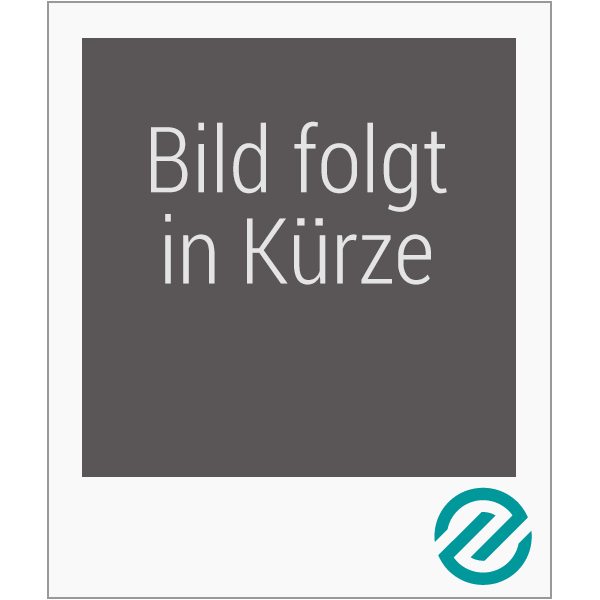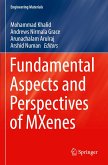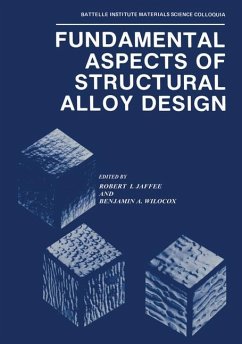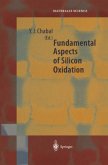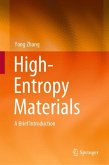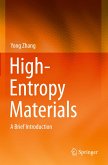- Gebundenes Buch
- Merkliste
- Auf die Merkliste
- Bewerten Bewerten
- Teilen
- Produkt teilen
- Produkterinnerung
- Produkterinnerung
This text introduces the rudiments of engineering surfaces and teaches basic phenomena of interacting surfaces in relative motion, major modes of friction and wear, and theories of contact evolution and lubrication.
Andere Kunden interessierten sich auch für
![Fundamental Aspects and Perspectives of MXenes Fundamental Aspects and Perspectives of MXenes]() Fundamental Aspects and Perspectives of MXenes125,99 €
Fundamental Aspects and Perspectives of MXenes125,99 €![Fundamental Aspects of Structural Alloy Design Fundamental Aspects of Structural Alloy Design]() Fundamental Aspects of Structural Alloy Design77,99 €
Fundamental Aspects of Structural Alloy Design77,99 €![Fundamental Aspects of Silicon Oxidation Fundamental Aspects of Silicon Oxidation]() Yves Chabal (ed.)Fundamental Aspects of Silicon Oxidation77,99 €
Yves Chabal (ed.)Fundamental Aspects of Silicon Oxidation77,99 €![Fundamental aspects for the adoption of the chronoanalysis Fundamental aspects for the adoption of the chronoanalysis]() Adriano PereiraFundamental aspects for the adoption of the chronoanalysis40,99 €
Adriano PereiraFundamental aspects for the adoption of the chronoanalysis40,99 €![Fundamental Aspects and Perspectives of MXenes Fundamental Aspects and Perspectives of MXenes]() Fundamental Aspects and Perspectives of MXenes125,99 €
Fundamental Aspects and Perspectives of MXenes125,99 €![High-Entropy Materials High-Entropy Materials]() Yong ZhangHigh-Entropy Materials132,99 €
Yong ZhangHigh-Entropy Materials132,99 €![High-Entropy Materials High-Entropy Materials]() Yong ZhangHigh-Entropy Materials132,99 €
Yong ZhangHigh-Entropy Materials132,99 €-
-
-
This text introduces the rudiments of engineering surfaces and teaches basic phenomena of interacting surfaces in relative motion, major modes of friction and wear, and theories of contact evolution and lubrication.
Produktdetails
- Produktdetails
- Verlag: Taylor & Francis Ltd
- Seitenzahl: 302
- Erscheinungstermin: 18. Juli 2024
- Englisch
- Abmessung: 234mm x 156mm
- ISBN-13: 9781032502250
- ISBN-10: 1032502258
- Artikelnr.: 70148118
- Verlag: Taylor & Francis Ltd
- Seitenzahl: 302
- Erscheinungstermin: 18. Juli 2024
- Englisch
- Abmessung: 234mm x 156mm
- ISBN-13: 9781032502250
- ISBN-10: 1032502258
- Artikelnr.: 70148118
Diana Berman is an Associate Professor of Materials Science and Engineering at the University of North Texas. Her research focuses on synthesis and characterization of nanostructures, surfaces, and interfaces of ceramic and carbon¿based materials for precise control and improvement of their tribological properties and functionality. She has published more than 80 papers in peer¿reviewed journals and holds over 10 patents (both US and international). Among her awards are TechConnect Innovation Awards, Society of Tribologists and Lubrication Engineers Early Career Award, UNT Early Career Professorship Award, UNT Research and Creativity Award, NSF Early Career Award, and Fulbright Scholarship Award. She also serves on the editorial boards for Nature Scientific Reports and Tribology Letters journals. Andreas Rosenkranz is a Professor of Materials-Oriented Tribology and New 2D Materials in the Department of Chemical Engineering, Biotechnology, and Materials at the University of Chile. His research focuses on the characterization, chemical functionalization, and application of new 2D materials. His main field of research is related to tribology (friction, wear, and energy efficiency), but he has also expanded his fields toward water purification, catalysis, and biological properties. He has published more than 160 peer¿reviewed journal publications, is a fellow of the Alexander von Humboldt Foundation, and acts as a scientific editor for different well¿reputed scientific journals, including Applied Nanoscience and Frontiers of Chemistry. Max Marian is a Professor of Multiscale Engineering Mechanics at the Department of Mechanical and Metallurgical Engineering of Pontificia Universidad Católica de Chile and Deputy Director of the Institute for Machine Design and Tribology (IMKT) of Leibnitz University Hannover, Germany. His research focuses on energy efficiency and sustainability through tribology, with an emphasis on the modification of surfaces through micrötexturing and coatings. Besides machine elements and engine components, he expanded his research toward biotribology and artificial joints. His work is particularly related to the development of numerical multiscale tribösimulation and machine learning approaches. He has published more than 50 peer¿reviewed publications in reputed journals, given numerous conferences and invited talks, and been awarded various individual distinctions as well as the best paper and presentation awards. Furthermore, he was listed among the Emerging Leaders of Surface Topography: Metrology and Properties, is on the editorial boards of several recognized journals, and is a member of the Society of Tribologists and Lubrication Engineers (STLE) and the German Society for Tribology (GfT).

